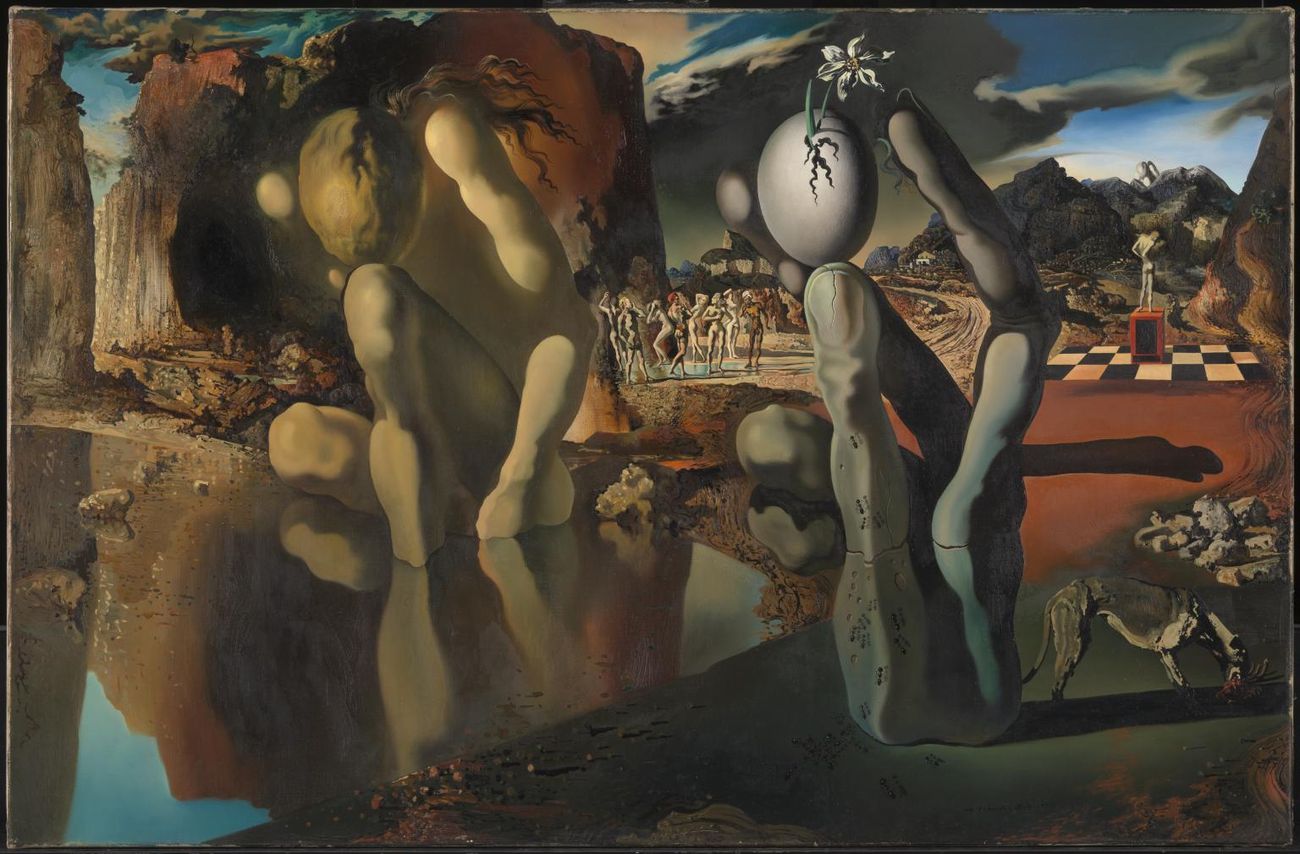Project Description
#STORIESTOSTARTOVER
Patrimonio di Storie, 2020
It’s like I suddenly recognised myself: I am that woman looking out the window, scanning the landscape, the horizon, the future. Just like me, she is looking outside, and yet she sees herself. I can perceive in her the pain of my own vulnerability, of being deprived of my liberty and everyday life. The shock was stronger than looking at myself in a mirror.
Rosana Gornati, museum mediator
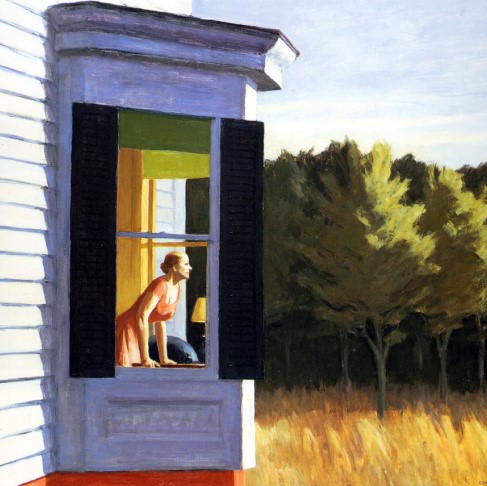
Edward Hopper, Cape Cod Morning, 1950
During the endless, more distressing time of the Coronavirus pandemic, we invited some of the storytellers with whom we have been working over the years to share with us short but intense texts around artworks which comforted them during lockdown, mirrored their anguish, yearning and uncertainty, but also helped them finding lost memories or looking to the future.
Ranging from an altarpiece dossal painted by the little-known artist Zanobi Rosi (1585/89 – post 1627) to a picture recently taken by Antonio Rovaldi in Staten Island as part of a project called “End. Words from the Margins, New York City, artworks once again show their potential to make room for our stories to be told, “illuminated”, redeemed from silence.
These short narrations were periodically published also in English on our Instagram and Facebook profiles.
Extracts
Zanobi sets the scene in a hilly landscape. It’s summer. A gentle breeze goes through the trees, the sky is pale grey with a shade of powder blue. Rainy clouds are on the way, but nobody seems to worry: it’s too good to be here, all together, near each other. If a storm breaks out, there are hats and scarves to pull over our heads. This painting instills such a sense of peace, the awareness of a perfect moment. I love being here: a place where I am not alone, there are friends around me, and he is looking at me.
When you are 20, embarking on the journey of life looks like taking flight. An indefinite fear holds you back, and yet you feel that urge to close your eyes and let yourself go. The constant pull of the mystery of life. Your feet well grounded, your face turned into the wind. Love, passion, pain, wounds. Everything attracts you, and everything repels you. What is the meaning of life? Of love? Of suffering?
I believe it was Composition VII by Kandinsky that taught me to perceive life as a kaleidoscope of challenges, success and failure, flights of fancy and painful falls. Warm colours exploding like fires, cold colours freezing your movements. Lines intersecting, angles intertwining, circles enveloping and embracing. The silence of black, the immeasurable possibility of white. Straight lines like indelible scratches…
Today more than ever, Composition VII invites us to overcome doubt, loss, defeat, and experience change. New opportunities. Bravely..
I didn’t know Edward Hopper’s work before lockdown. It was enough for me to look at a few of his paintings to grasp the essence of his style: […] the images are static, and yet they convey an eternal movement.
Seeing “Cape Cod Morning” sent a shiver down my spine. It’s like I suddenly recognised myself: I am that woman looking out the window, scanning the landscape, the horizon, the future. Just like me, she is looking outside, and yet she sees herself. I can perceive in her the pain of my own vulnerability, of being deprived of my freedom and everyday life. The shock was stronger than looking at myself in a mirror.
There are six chairs in a wood; we have no way of knowing who brought them here, surely they did not appear out of nowhere; they are neither piled on each other, nor knocked to the ground, suggesting a sudden escape. They are arranged in a circle, speak the universal language of storytelling, evoke a small community of loved ones getting together and finding solace in the shade of this secluded glade. They remind me of a museum room, enclosing glances, conversations, generational shifts and light anecdotes… To me, these chairs are not so much an abandoned place, as a waiting station; they do not evoke despair or surrender, but hold the promise of a return.
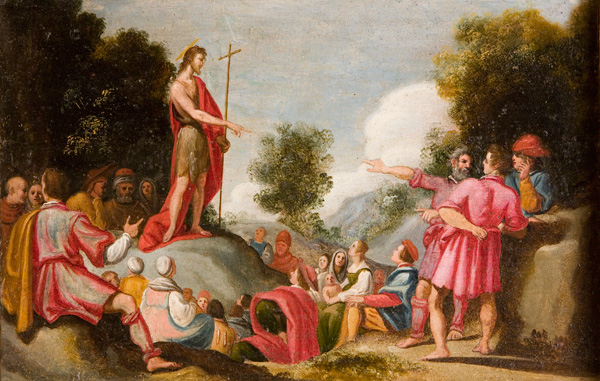
Zanobi Rosi, San Battista preaching, 1626
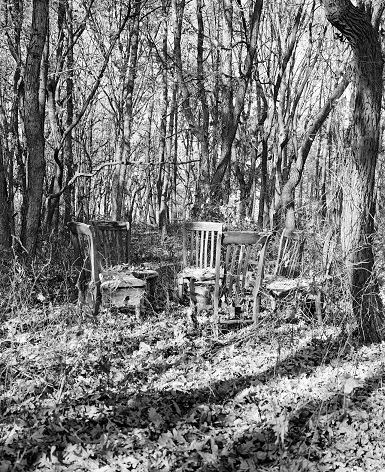
Antonio Rovaldi, Staten Island, 2017
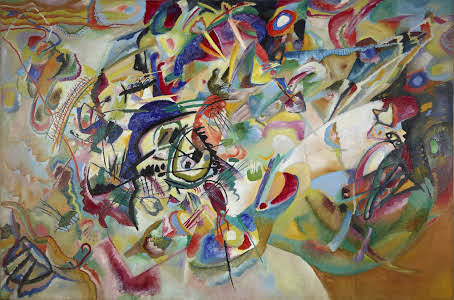
Vasilij Kandinskij, Composition VII, 1913
